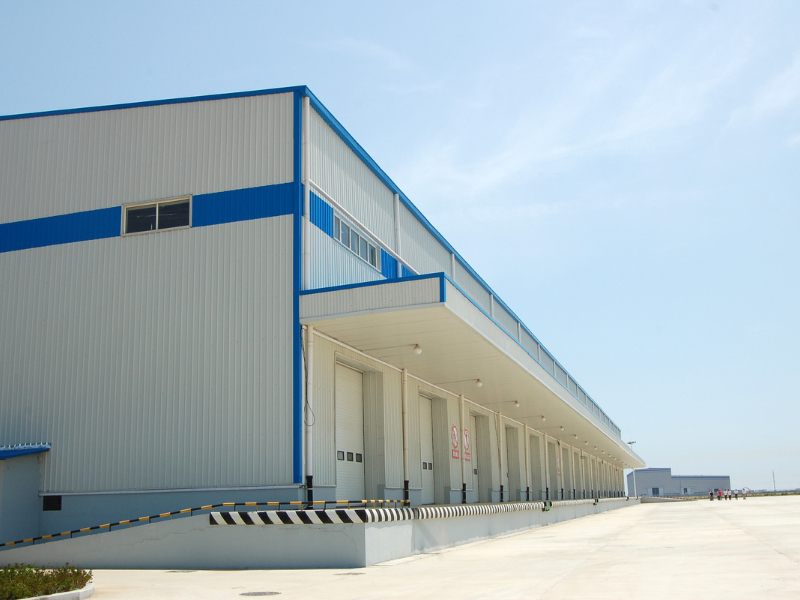Warehouses provide storage racks while utilizing handling equipment and personnel and management resources to manage the differences between incoming goods received from suppliers and production centers as well as outgoing items shipped to production and sales.
Warehouse operations consist of three main parts that handle inventory preparation for distribution and maintenance of tracking systems and order fulfillment.
Warehouse management refers to the systematic handling of warehouse inventory through quantitative tracking and expiration date surveillance and product reorganization for consumer-demand optimization.
Flexible Warehouse Infrastructure
Scalable Storage Solutions

Weatherproof adjustable storage systems must be installed to allow reorganization of warehouse space size according to fluctuating product inventory needs.
Adjustable racking in warehouses offers numerous benefits, including space optimization, easy access to goods, adaptability to different storage needs, and enhanced safety.
Modular Facility Design
The modern construction technique known as modular facility design consists of building facility sections and modules from controlled factory environments. Prefabricated modules will be shipped to the construction site where they are used for building the final structure.
Warehouses that implement modular facility design benefit businesses through quick assembly speed, affordable construction costs and modular adaptability, precise scale-up potential which makes them the ideal storage solution.
On-Demand Warehousing
The flexible warehousing model known as on-demand warehousing enables companies to obtain temporary warehouse space together with services by means of rental agreements. Real-time requirements drive businesses toward on-demand warehousing because this system lets them adjust both warehouse space dimensions and their facility needs during current market conditions.
On-demand warehousing offers businesses flexible and cost-effective storage solutions, enabling them to adapt to changing market demands, reduce fixed costs, and improve operational efficiency by integrating logistics services.
Leveraging Advanced Technologies
Warehouse Management Systems (WMS)

A WMS function as warehouse management system software which enables companies to monitor and regulate their daily warehouse functions throughout product entry into distribution or fulfilment centers until final product departure. The WMS software serves as an essential element of supply chain operations since it provides real-time tracking of all inventory stored within and in transit across facilities.
Warehouse Management Systems (WMS) offer numerous benefits, including improved efficiency, reduced costs, enhanced inventory accuracy, faster order fulfillment, and better customer satisfaction, all while streamlining warehouse operations.
Automation and Robotics
Warehouse organization based on good practices has historically consisted of space optimization and inventory oversight added to order completion within defined timelines. The current technological advancements together with AI systems enable organizations to conduct these activities more efficiently by providing instant accurate results in a faster time frame.
The adoption of robotic automation within warehouses generates several essential advantages which reduce staff expenses while increasing operational speed and enhancing reliability as well as workplace protection and optimizing storage efficiency to deliver faster shipments that produce satisfied customers.
Strategic Workforce Management
Cross-Training Employees

Organizations follow cross-training methods by preparing workers to execute diverse responsibilities at work so they gain competency across different operational areas. The warehouse operations scenario allows forklift operators to act as order picker operators and picker-packer staff to handle quality control tasks.
Warehouse cross-training generates several advantages which result in better workforce flexibility as well as better teamwork performance and decreased costs and higher retention rates of employees.
Warehouses That Grow With Your Business
Warehouses enable business expansion through clear management structures which improve product storage alongside distribution systems. Quick adjustments in meeting new demands become possible for warehouses through the use of flexible layouts as well as smart technology including WMS and automation and on-demand space access.
Businesses maintain their advantage over growth through scalable systems together with cross-training their staff no matter how quickly their operations expand. An optimally managed warehouse functions beyond storage to both support your workforce and enhance client service and warehouse system performance as your company expands.

